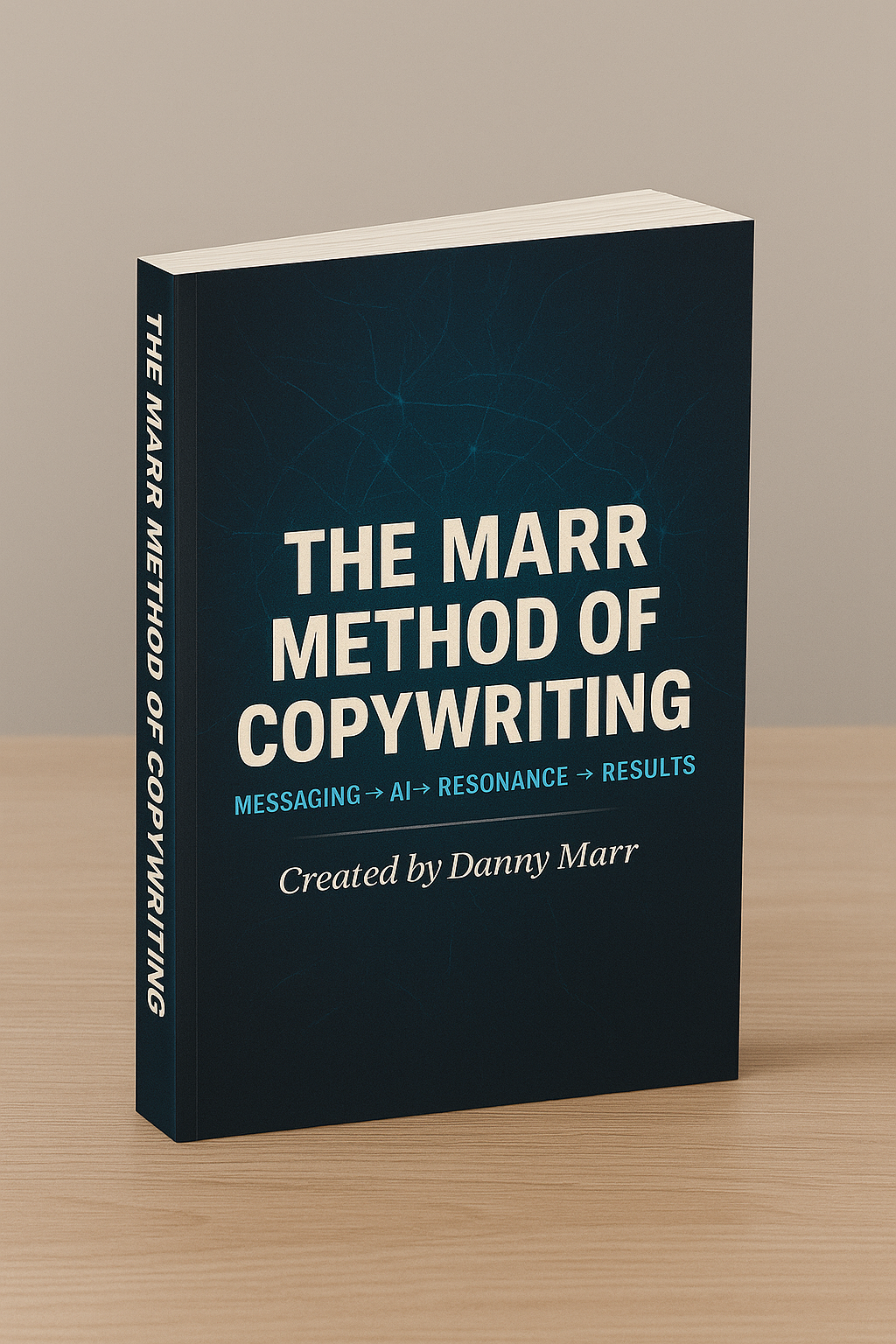
Introduction to Value-Based Copywriting
In an increasingly saturated market, standing out is no longer just about having a good product or service; it’s about creating a meaningful connection with your audience.
Value-based copywriting offers a way to achieve this by focusing on authenticity and shared ideals.
At its core, this approach prioritizes aligning your writing with both your personal principles and the overarching mission of the brand you’re representing.
When done effectively, it goes beyond selling; it creates a deeper resonance with your audience by showing that your messaging reflects real care and intention.
This strategy allows writers to craft messages that feel genuine, not forced or transactional.
Today’s consumers are highly perceptive; they can easily tell when a message lacks sincerity.
By using value-based copywriting, you tap into what truly matters to both you and your audience, making your communication more relatable and impactful.
It’s not just about highlighting what makes a product or service valuable; it’s about communicating why it matters on a personal and societal level.
A key element of value-based writing is its ability to foster emotional connections.
People are drawn to stories and messages that reflect their own values or aspirations.
By weaving these shared beliefs into your writing; you’re not just marketing, you’re building relationships.
This can be especially effective for brands that aim to inspire or lead change, as it demonstrates a clear alignment between their actions and the issues they care about.
Additionally, value-based copywriting gives you the opportunity to differentiate your work by offering more than surface-level promises.
When your writing is anchored in what you genuinely stand for, it creates a sense of consistency and trustworthiness.
This, in turn, strengthens the relationship between the brand and its audience, making it easier to establish loyalty over time.
Instead of focusing solely on selling, you’re showing how the brand exists to support the values it shares with its community.
Identifying Your Personal Values

Understanding what truly matters to you is an essential step in creating value-based copywriting.
Your personal values act as a guide, shaping the way you communicate and the messages you want to share with the world.
To uncover these values, start by reflecting on moments in your life that have had a lasting impact; times when you felt proud, motivated, or deeply connected to your purpose.
What qualities or beliefs were at the core of those experiences? These are often strong indicators of your fundamental values.
Another way to identify your values is to examine the causes or issues you feel passionate about.
Think about the types of stories, brands, or movements that inspire you.
Are you drawn to themes of social justice, environmental responsibility, or innovation?
Paying attention to these emotional connections can provide important insights into the ideals that resonate with you the most.
Additionally, seeking feedback from trusted colleagues, friends, or mentors can help you gain an outside perspective on what they see as your guiding principles.
Your values aren’t just abstract ideas; they’re the driving force behind how you approach problems, create solutions, and relate to others.
By recognizing how these values influence your decision making and communication style, you can better align your writing with what feels authentic to you.
This alignment creates a sense of consistency that not only builds trust with your audience but also gives you the confidence to approach your work with clarity and intention.
It’s also important to remember that values may shift or evolve over time.
As you grow personally and professionally, you may find that your priorities change or expand.
Revisiting this process regularly can ensure that your writing continues to reflect the most authentic version of yourself.
By staying connected to your values, you position yourself to create content that resonates deeply, both with your audience and within your own sense of purpose.
Incorporating Values into Copywriting

Once you’ve gained clarity on your personal values, incorporating them into your copywriting requires intentionality and thoughtfulness.
One effective way to achieve this is by using storytelling to communicate your values in a relatable and engaging manner.
Stories are a powerful way to showcase principles in action, helping your audience connect with your message on a more emotional level.
For example, instead of simply stating that a brand values inclusivity, you can share a story about how it has supported diverse communities or amplified underrepresented voices.
This not only illustrates the value in a real-world context but also helps the audience feel the impact of the message.
Another strategy is to focus on the “why” behind the message.
Highlight the purpose that drives the product or service, tying it back to shared beliefs.
For instance, if a key value is environmental sustainability, your writing might emphasize how a product reduces waste or supports eco-friendly initiatives.
This approach moves beyond basic benefits to create a narrative that reflects both the brand’s and audience’s deeper priorities.
Choosing language that reflects your values is another essential step.
Words carry weight, and selecting those that align with your guiding principles can make your writing feel more sincere and intentional.
For instance, if your values center around compassion and connection, your tone and word choices should reflect warmth and empathy.
Similarly, if innovation and progress are central to your values, your messaging can highlight forward thinking ideas and actionable solutions.
Collaboration also plays a significant role when writing on behalf of a brand.
While it’s important to bring your personal values into your work, your role as a copywriter often involves representing the collective mission of the brand.
To strike the right balance, focus on finding overlap between your values and the brand’s purpose.
This ensures that your messaging stays authentic while also meeting the goals of the organization.
Take the time to understand the brand’s core principles, and think about how they intersect with your own.
This alignment strengthens the authenticity of the message while maintaining consistency with the brand’s identity.
Visualizing your audience is another helpful tactic.
Think about what they value and how your message can speak to those ideals.
Connecting shared values between the brand, yourself, and the audience creates a dynamic that feels personal rather than transactional.
For instance, if a target audience prioritizes family, your writing could highlight how a product or service enhances connection or supports family life.
Incorporating values into copywriting is not about overtly listing principles; it’s about embedding them naturally into every piece of communication.
Whether through the tone, the structure of the message, or the themes you emphasize, your values should come through as an integral part of the story you’re telling.
The goal is to make the audience feel seen and understood, all while staying true to your principles and the brand’s mission.
The Impact of Value-Based Writing

Value-based writing has the unique ability to create a sense of connection that feels both natural and lasting.
When your work reflects shared values, it resonates with your audience in ways that go beyond traditional marketing tactics.
People don’t just want to know what a product or service can do; they want to feel that the brand behind it understands and supports what matters to them.
By aligning your messages with meaningful principles, you create a foundation for trust, which is essential in building strong relationships with your readers.
This type of writing can also humanize a brand.
Audiences are often drawn to brands that demonstrate a clear sense of purpose and authenticity.
When you weave values into your messaging, it shows that the brand has depth and isn’t solely focused on profits.
This can make readers feel more connected to the brand, as they see it as a partner in addressing shared goals or contributing positively to larger causes.
It shifts the perception of the brand from being just another business to being a meaningful part of their lives.
Another key effect of value-based writing is how it fosters a sense of belonging.
When readers feel that a message aligns with their own beliefs or experiences, it creates a bond that feels personal.
This emotional connection can significantly influence how people perceive and interact with a brand.
For instance, highlighting values such as inclusivity or community support can make readers feel seen and valued, which increases the likelihood that they’ll engage more deeply with the message.
This engagement can take many forms, from brand loyalty to advocacy, as people are more inclined to support causes and companies that align with their ideals.
Moreover, value-based writing has the power to inspire action.
When your words reflect not just a product’s features but also the values it represents, you encourage readers to think about how their own choices align with their beliefs.
This can motivate them to make decisions that feel aligned with their principles, whether that’s purchasing a product, supporting a movement, or simply resharing your message with others.
Writing that taps into shared ideals is far more likely to lead to action because it speaks to the audience on a deeper, more meaningful level.
The ripple effect of this approach is significant.
When you consistently create content that is anchored in values, it strengthens the reputation of both the writer and the brand.
People begin to associate the brand with qualities like integrity, authenticity, and purpose, which in turn builds credibility.
This credibility doesn’t just attract attention; it encourages readers to trust what you have to say and to feel confident in engaging with the brand.
Over time, this kind of writing helps establish a reputation that stands out in a crowded marketplace, as it positions both the writer and the brand as advocates for something larger than themselves.
Achieving Personal Fulfillment Through Writing

When your work resonates with your personal values, it has the potential to create a deep sense of satisfaction that goes far beyond meeting deadlines or achieving business goals.
Writing that is rooted in your own principles allows you to bring authenticity and meaning to your work in a way that feels rewarding on a personal level.
It’s not just about crafting compelling messages; it’s about using your voice to share ideas and perspectives that genuinely matter to you.
This connection can make the writing process feel more purposeful, transforming it from a routine task into a source of personal expression.
One of the most fulfilling aspects of value-based writing is the opportunity to contribute to something larger than yourself.
Whether you’re championing social causes, advocating for innovation, or simply striving to connect with others on an emotional level, your words can reflect your passion and commitment to creating positive change.
This sense of contribution is often what drives writers to feel inspired and motivated in their work.
It’s not just about reaching an audience; it’s about making a meaningful difference in their lives.
Writing in alignment with your values also brings a sense of clarity to your creative process.
When you have a clear understanding of what you stand for, decision-making becomes easier.
You can approach each project with confidence, knowing that your work reflects your true self and what you believe in.
This clarity reduces the internal conflict that can sometimes arise when your work feels disconnected from your personal ideals, allowing you to focus fully on crafting messages that feel both impactful and genuine.
Additionally, weaving your values into your writing helps foster a deeper connection with your audience, which in turn makes the experience more fulfilling.
Knowing that your words resonate with people on a meaningful level can be incredibly rewarding.
It’s a reminder that your work isn’t just reaching inboxes or ad spaces; it’s reaching hearts and minds.
This feedback loop of creating meaningful content and seeing its impact on others can serve as a powerful motivator, encouraging you to continue producing work that reflects your unique perspective.
The process of aligning your writing with your values can also spark personal growth.
It often requires you to reflect deeply on your beliefs, priorities, and the role you want to play as a communicator.
This self-reflection can lead to greater self-awareness and a stronger sense of purpose, not only in your career but in other aspects of your life as well.
As you grow more confident in expressing your values through your writing, you may find yourself becoming more intentional in the way you approach challenges and opportunities, both personally and professionally.
Overcoming Challenges in Value-Based Copywriting

Creating copy that reflects your values while aligning with business or client goals can sometimes feel like a balancing act.
One of the most common challenges is navigating situations where your personal principles don’t fully align with the priorities of the brand or organization.
This can be frustrating, but it also presents an opportunity to find areas of commonality.
Start by having open and honest conversations with stakeholders.
By understanding their goals and sharing your perspective, you may discover shared values or overlapping objectives that can guide your writing.
The key is to focus on building a collaborative approach rather than viewing the situation as a conflict.
Another challenge in value-based copywriting is ensuring that your message doesn’t come across as overly idealistic or out of touch with practical realities.
While your values should serve as a foundation, it’s also important to consider the tangible benefits and solutions that your audience expects.
Striking a balance between emotional resonance and actionable messaging ensures that your writing remains both impactful and relevant.
Avoiding vague or overly abstract language can help you craft messages that feel grounded and relatable, while still staying true to your principles.
Time constraints can also make it difficult to fully integrate your values into your writing.
When deadlines are tight, it may feel tempting to rely on generic messaging rather than digging deeper into what you stand for.
To overcome this, consider developing a set of guiding questions or criteria that you can quickly reference during the writing process.
For example, ask yourself: Does this message reflect what I believe in? Does it align with the brand’s purpose?
Will it resonate with the audience on an emotional level? Having these tools in place can help you stay focused on what matters most, even when time is limited.
Maintaining consistency across different projects or platforms can be another obstacle.
Each piece of writing may require adjustments to fit its specific context or format, but it’s important to ensure that your core values remain intact.
A helpful strategy is to develop a clear framework for how your values are represented in your writing.
This might include identifying key themes, tone, or phrases that encapsulate your principles.
By establishing these guidelines, you can adapt your messaging to fit various needs while still ensuring that it feels authentic and cohesive.
Finally, it’s worth acknowledging that value-based copywriting may sometimes require you to take a stand on complex or sensitive issues.
This can be intimidating, as you may worry about how your audience or stakeholders will respond.
However, embracing this challenge can also be an opportunity to demonstrate courage and integrity in your work.
By approaching these topics with care and respect, you show that your writing is not only meaningful but also reflective of your commitment to making a positive impact.
Navigating these challenges takes effort, but the result is writing that feels authentic, intentional, and impactful.
Over time, the ability to skillfully integrate your values into your work will become a defining strength, setting you apart as a writer who brings purpose and depth to every message.
💡 Quick question before you go:
Are you using AI in your copywriting — or letting it use you?
Take the 2-minute quiz to uncover your Copywriting + AI Style, get your personalized analysis, and receive a free copy of The Marr Method of Copywriting.
 👉 Take the Quiz — Unlock Your Style
👉 Take the Quiz — Unlock Your Style

Your article helped me a lot, is there any more related content? Thanks!